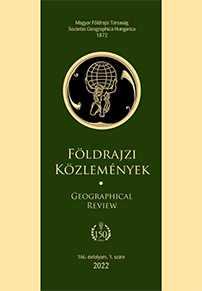The Emergence of the Smart City Concept in the Policy Documents of the Largest Towns in Hungary
Abstract
Recently, there has been a tremendous spread of the term “smart city” in theoretical works as well as in urban planning practices. This study investigates the impact of this process in the Hungarian context. The main goal of the paper is to analyse specific policy documents of the thirty-one most populous towns in Hungary. The sample excludes the capital city, Budapest, which differs significantly from these towns in size and in the grade of international embeddedness. The majority of the scrutinised documents were written in the same time period and in the same structure, which makes them a good basis for comparison. The results show that the term “smart city” started to appear in urban development plans in 2014. This is when most of the documents still in force today were written. The term was used in many different ways, however. In some cases, policy documents presented a detailed “smart city vision” for the future. In five municipalities, the local government even approved a smart city strategy. In many other towns, policy documents only referred to the “smart city” either with regard to a specific project or in very broad terms. Moreover, documents in 40% of the examined towns do not mention the term at all. For factors influencing the emergence of the term (or its absence), geographical location does not show a clear relevance, and settlement size seems to play a role only in the five most populous cities. However, the results suggest some correlation with central urban functions.
Copyright (c) 2022 Anett Árvai

This work is licensed under a Creative Commons Attribution-NonCommercial-NoDerivatives 4.0 International License.

